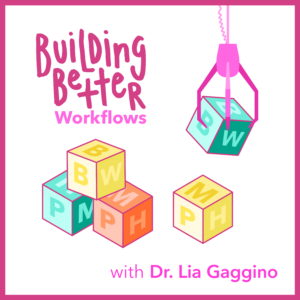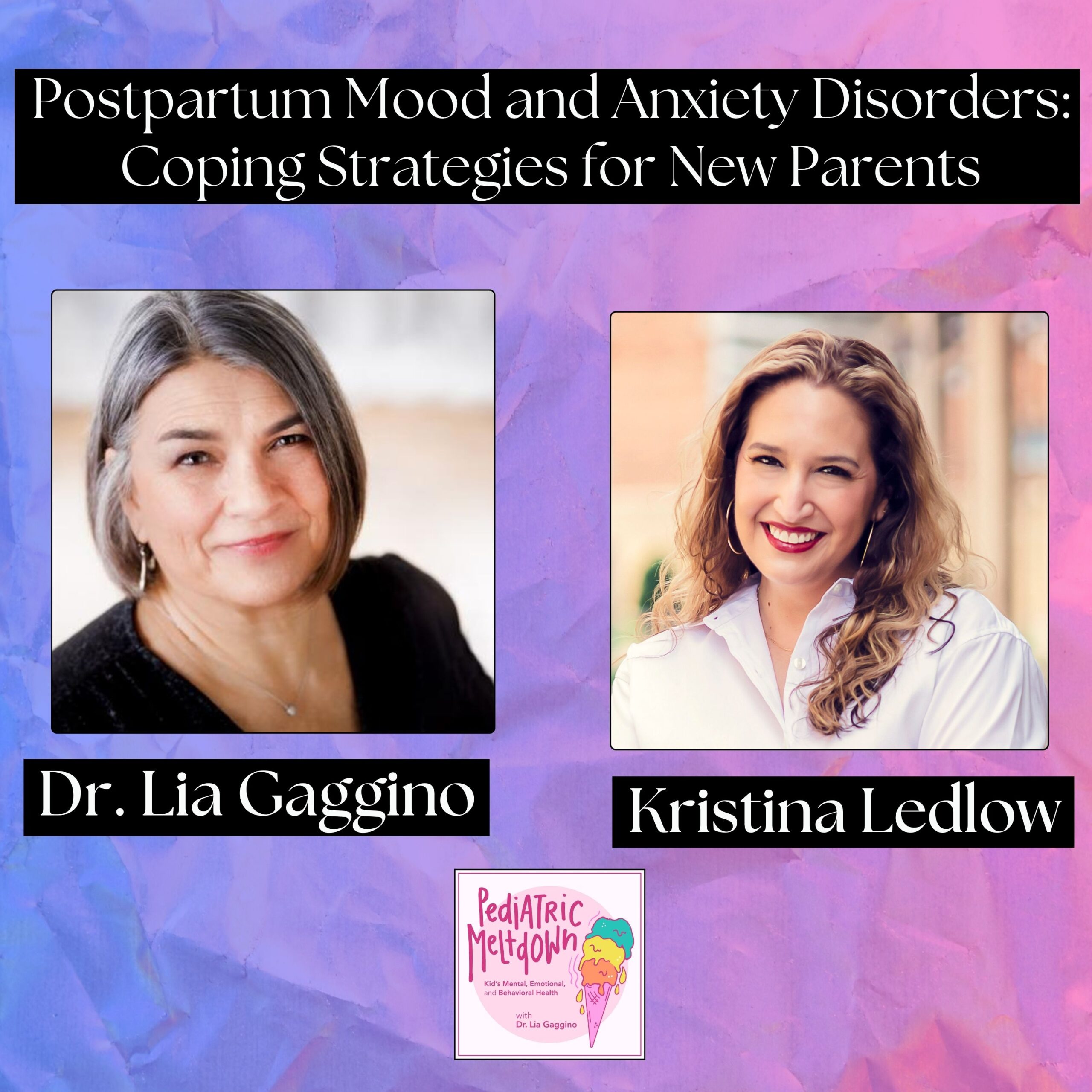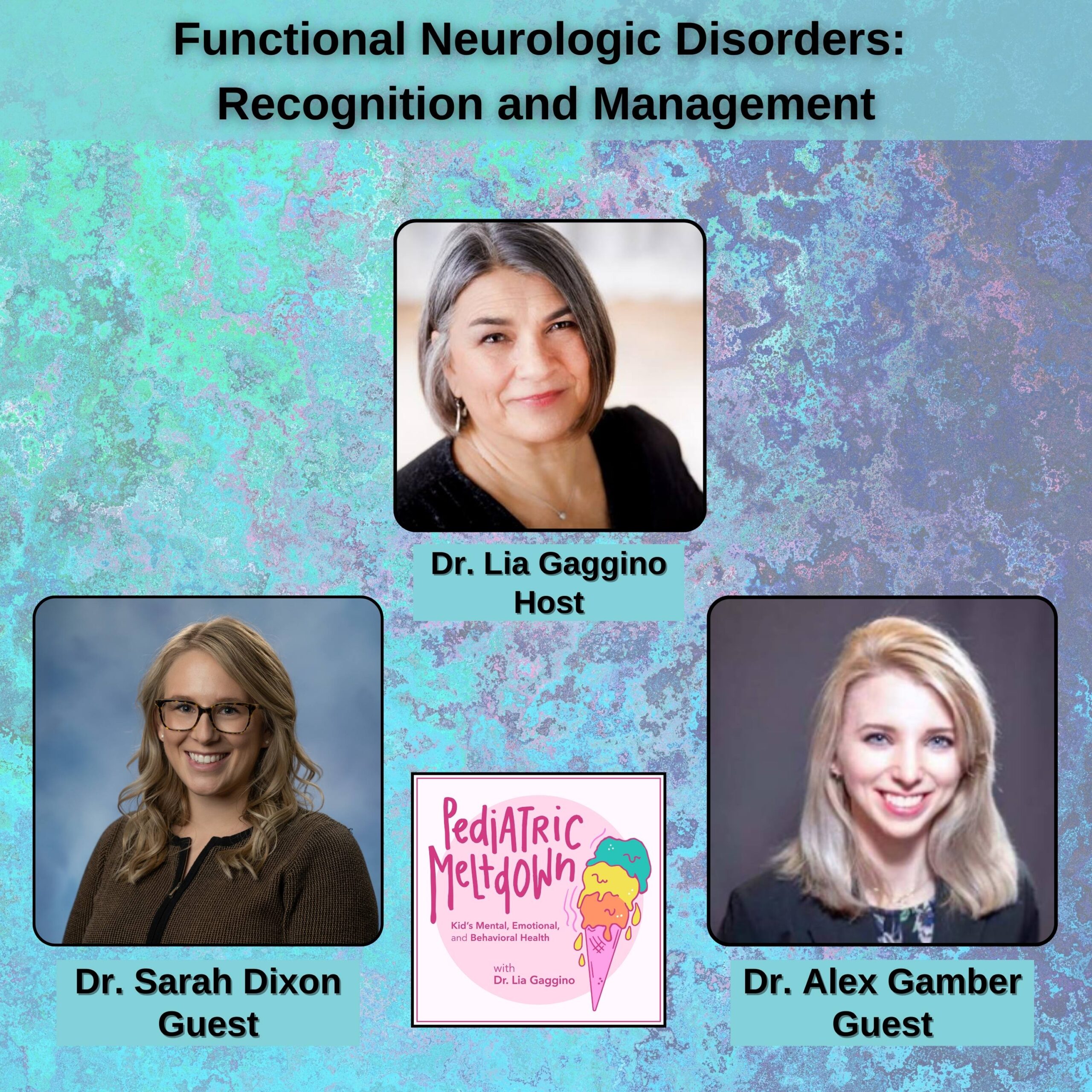
As a primary care pediatrician and host of the Pediatric Meltdown podcast, I understand the critical importance of children’s mental health and emotional well-being. In our roles as pediatric clinicians, we often find ourselves at the forefront of addressing these concerns. However, many of us may not have received formal training in this area.
I created the limited series Pediatric Mental Health: Building Better Workflows Podcast and designed this companion workbook to support pediatric clinicians like you in becoming experts in behavioral and mental health care for children.
Families rely on us to be their trusted professionals when it comes to their children’s well-being, including their mental health. It’s imperative that we equip ourselves with the necessary knowledge and skills to meet this responsibility head-on.

In this inaugural episode of the “Building Better Workflows” podcast series, Dr. Lia emphasizes the critical objective of improving pediatric mental health care systems. Reflecting on her early challenges, she highlights the importance of learning effective techniques for pediatric suicide prevention, especially in assessing risk factors and ideation among children.

In episode 2 of “Building Better Workflows,” Dr. Lia addresses the challenge of implementing change in the context of the current mental health crisis. She introduces the concept of “paint done,” emphasizing envisioning the optimal patient care experience to drive forward procedural enhancements, particularly surrounding mental health services.

In episode 3 of “Building Better Workflows,” Dr. Lia emphasizes the significance of thorough assessments in pediatric and maternal healthcare settings to enhance workflows. She introduces the concept of “office readiness” and provides a free downloadable tool available through her website.

In Episode 4 of “Building Better Workflows,” Dr. Lia focuses on enhancing the capability of medical staff in managing mental health issues effectively within their practices. She emphasizes the importance of mental health assessment, comparing it to handling physical conditions like respiratory distress in children, suggesting that similar competence is required for both.

In Episode 5 of “Building Better Workflows,” Dr. Lia focuses on the importance of staff training in healthcare settings to enhance mental health support for patients. She recounts the challenges her practice faced when new processes, such as the PHQ-9 screens, were introduced without adequate training, emphasizing that effective training boosts staff confidence and competence.

Episode 6 of “Building Better Workflows,” emphasizes the importance of maternal mental health screening using the Edinburgh screen, highlighting its role in assessing postpartum depression to support mothers and their babies. She sheds light on key developmental and mental health screenings like the developmental screening tools, ASQ and SWIC, and the AAP Bright Futures recommended M-CHAT for early autism detection in toddlers.

In episode 7 of “Building Better Workflows,” Dr. Lia discusses crucial topics related to suicide prevention, emphasizing the importance of having a robust mental health policy in healthcare settings. She begins by stressing the necessity for clear suicide prevention policies and thorough training for staff to manage crisis interventions effectively.

In episode 8 of “Building Better Workflows,” Dr. Lia emphasizes the importance of mental health integration into existing practices. She guides listeners through revisiting initial survey data and identifying gaps in their services, such as inadequate substance use screening, to refine their behavioral health workflow.

In Episode 9 of “Building Better Workflows,” Dr. Lia discusses the critical steps needed to implement mental health initiatives effectively. Emphasizing the importance of mental health training, she suggests starting with clear short-term goals, utilizing available training resources such as mental health first aid, and ensuring staff are skilled in screening for depression and managing the outcomes sensitively.

In Episode 10 of “Building Better Workflows,” Dr. Lia discusses the essentials of pilot implementation in healthcare settings, focusing on the example of substance use screening. She advises starting small, suggesting a pilot with just one or two providers, and emphasizes the importance of setting SMART goals—specific, measurable, achievable, realistic, and timely objectives.

In Episode 11 of “Building Better Workflows,” Dr. Lia delves into the pivotal aspect of collaboration and forging partnerships to elevate the quality of mental health services tailored for individuals facing crises. Her passion for event planning is evident as she advocates for a collective approach rather than an isolated endeavor in providing comprehensive mental health support.

In episode 12 of “Building Better Workflows,” Dr. Lia addresses essential pediatric coding guidelines and mental health billing strategies aimed at improving reimbursement for pediatric healthcare services. She begins by recommending the American Academy of Pediatrics’ latest *Coding for Pediatrics* manual as a vital resource for staying current with coding practices, emphasizing the chapters dealing with mental and behavioral health coding.

In Episode 13 of “Building Better Workflows,” Dr. Lia discusses the critical aspect of Mental Health Outcomes Measurement in the context of Integrated Behavioral Health. She emphasizes the necessity of collecting data to support implementation changes, secure funding, and enhance service delivery.

In episode 14 of “Building Better Workflows,” Dr. Lia addresses the critical topic of Mental Health for Pediatricians, discussing the pervasive issue of Burnout in Healthcare among pediatric professionals. Drawing from personal experiences, she describes how her own stint focusing solely on behavioral health led to a significant salary drop and emotional exhaustion.



